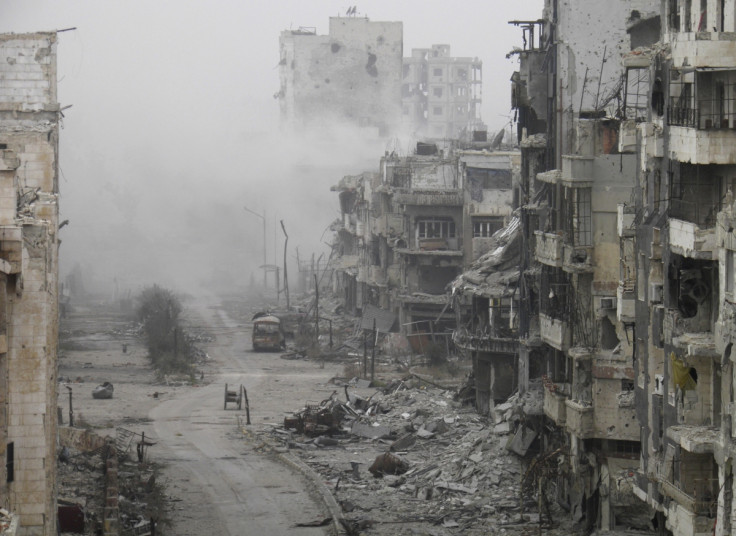Syria's War Economy: How it Works and Who Makes Money

When the international media first entered the Yarmouk camp near Damascus in February, the residents' stories of suffering appalled the world. Many were malnourished and exhausted, barely surviving a siege that had lasted for months.
While the UN managed to broker a deal that secured limited access for aid convoys to the camp, the desperate reality for Syria's remaining civilian population became clear for the world to see.
That reality is a total breakdown of normal economic and social activity. A lack of electricity, inadequate food, barely any functioning schools and health care services a mere memory. In place of the vibrant economy that had once thrived in towns and cities across Syria, now a war time economy has taken root.
A recent report published by the European Council on Foreign Relations (ECFR) has revealed which parts of Syrian society broke down and what's emerged in its place.
Areas under control of the Syrian government have maintained basic services, refreshed by regular injections of cash from governments and individuals still friendly with the Syrian President Bashar al-Assad. Soldiers in the government army still receive a regular salary.
Those living in contested areas and opposition strongholds enjoy no such luxury. When security collapsed, so too did the local economy and society - there was a power vacuum. In time, an informal economy rooted in smuggling, kidnapping and looting has filled the void.
The old business class has been replaced by a new kind of businessman. Those adept at stripping assets from factories to be sold, looting the vaults of regional banks or seizing oil fields have become empowered.
Oil fields, border posts and grain storehouses are now vital economic lifelines, which is why some of the bloodiest fighting between rebel militias has taken place far from the primary front lines of Aleppo or Homs.
Jabhat al-Nusra, an Islamist militia with loose ties to al-Qaeda, has been effective in managing its resources. The oil fields are so lucrative that a new market has evolved near to the Turkish border, where oil is sold for export to Turkey or within Syria.
Another Islamist rebel brigade, the Islamic State of Iraq and Syria (ISIS,) has seized flour mills in the northeast of the country, big enough to make bread for a million people each day. Setting-up and manning checkpoints on the road is a lucrative way to extort cash from passing vehicles.
Meanwhile, the battles themselves have become an opportunity to generate revenue. There have been reports that groups have prolonged an attack in a bid to win more money from wealthy individual supporters.
Moreover, the international sanctions against the Syrian regime have created opportunities to generate cash. Middlemen acting for the regime can establish elaborate schemes to avoid sanctions and bring goods and serviced into the country, charging fat fees along the way and sucking moee money out of state coffers and into cronies' pockets. The ECFR report highlights Assad loyalist Rami Makhlouf as among the businessmen profiteering from this new economy.
Syria's civil war is now into its fourth year and there's still no sight of an ending. As the society and the economy broke down, both sides in this war have manoeuvered to exploit the new economy to its benefit, with the aim of strengthening their respective war machines.
In the short run, it's proved very profitable for those with the skill to manage their resources. However, the long term implications for Syria and its people are dire. The country has fragmented so much that it's hard to envisage a central state based on pre-war norms and the presence of newly empowered warlords is troubling.
If the conflict can ever be solved at the negotiating table, there's no doubt that the very men profiteering from the war will be there at the table, ready to claim a stake in the new Syria.
© Copyright IBTimes 2025. All rights reserved.




















